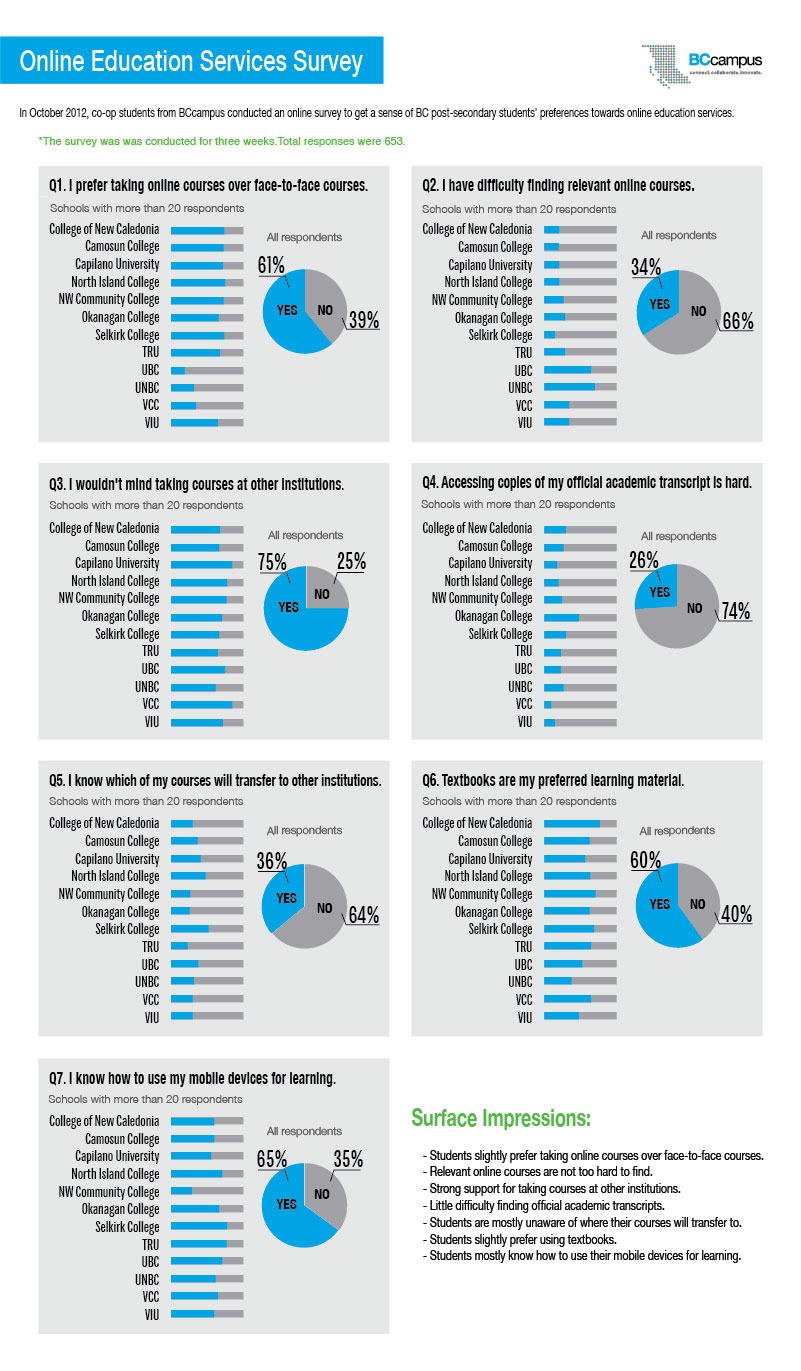The purpose of this survey was to get a bird’s eye of British Columbian post-secondary students’ preferences towards online education services. BCcampus currently provides a number of different services for students in BC, including coursesBC, myCreditsBC, and ApplyBC. We’re interested in what new services we can offer for students, or how those existing services could be improved. Rather than guessing what students needs, we want to hear students needs from their own mouths – or mice. This survey is to be the first part of research about students’ views of online education. The second part will be one-on-one interviews with students across BC. Thus we tried to reach a broad audience by advertising on Facebook and sending it to students attending institutions participating in BCcampus’ Online Collaborative Programs. As well, we avoided specifics to make the survey easy to complete and applicable to all BC students.
We hoped that with stark yes-or-no choices the responses would swing in one direction or another, suggesting where we could ask questions. If students responded that they like textbooks, then we need to find out why and what services we might be able to provide. Instead, the results were polarized across the board. No question received more than 80% in either direction. It’s hard to believe that we could design seven yes-or-no questions with such ambiguous responses, suggesting there is much disagreement about the role of online education among students. In the case of “I prefer taking online courses over face-to-face courses” and “I have difficulty finding relevant online courses” there seemed to be a split between brick-and-mortar institutions and more online focused institutions, with the latter more enthusiastic about online education. However, most of the questions did not have any sort of pattern except ambiguity.
What is consistent through the survey is how inconsistent the responses are. This could be because we used very general terms that students may not be familiar with. Or they may have different meanings to different students. What do students think when they see “online courses”, “mobile devices”, and “transfer to other institutions”? The next step will have to be to get students’ needs in more concrete terms, specifying exactly what students want. However, it is also more than likely that there is disagreement about the current state of online education and student services. There may be a diversity of needs that we simply don’t know about. If we are to improve student services, then it is clear from this survey we need to move away from the bird’s eye view, and find out why students responded so differently to these questions.
Posted by Patrick Clarke

